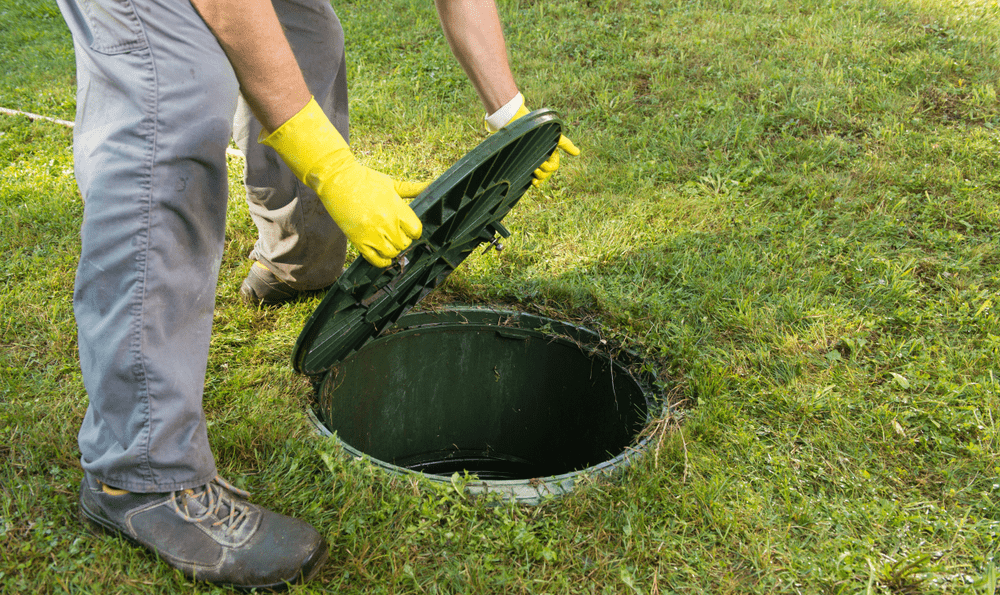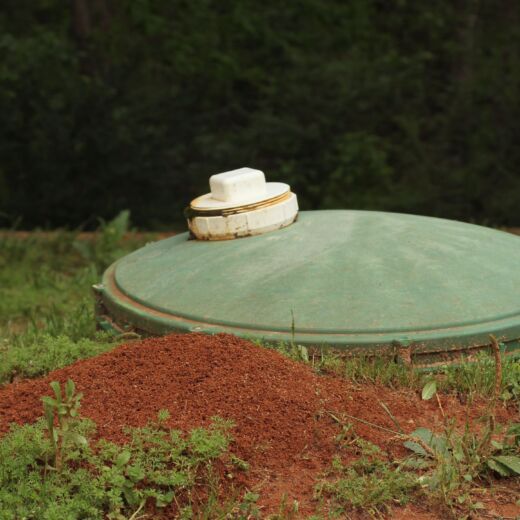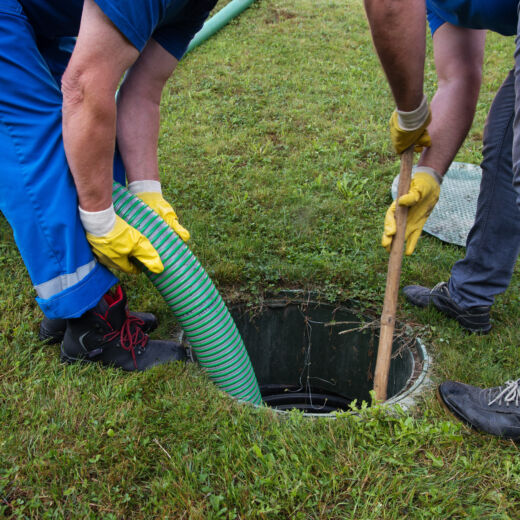Homes outside the city limits that aren’t connected to a city sewer line require a septic system to treat wastewater, which includes anything that is flushed down the toilet or goes down the drain.
In a septic system, sewage collects in the septic tank, where sludge and scum separate from the rest of the water. The septic system is one of the most important items to keep well-maintained, as a minor issue can quickly become a significant and costly problem. Septic system inspections ensure that the system functions properly and should be scheduled regularly before an issue arises.
How a septic system works
Wastewater is collected in an airtight underground septic tank where solids are broken down into sludge (the solid portion of sewage waste) and scum (fat, oil, and grease) that float on the water. Effluent (water) exits the tank into a drainfield, where it is filtered naturally by bacteria and goes back into the soil. Scum and sludge should never enter the drainfield.
Septic system inspections should be done annually. Some provinces require annual septic assessments by qualified technicians for insurance purposes. Annual inspections can help increase the home’s value and should always be done before the house is put on the market for sale.
The benefits of professional septic system inspections
1. Prevents costly issues
Annual septic system inspections can catch small issues early before they become a major problem and lead to costly repairs or even a complete system replacement. Yearly inspections can also prevent emergency services that can be disruptive and inconvenient for rural dwellers. Technicians can catch concerns that may influence system operation and fix faulty equipment such as pumps, filters, floats, and alarms.
Septic system warning signs to watch out for include:
- Slow or no drainage
- Foul odours around the septic tank and drainfield
- Lush green grass growing around the septic tank
- Standing water in the drainfield and septic tank
- Gurgling sounds coming from toilets and drains
Food waste, wipes, disposable diapers, dental floss, cigarette butts, sanitary napkins, and tampons are all items that should never be flushed or drained through a septic system.
2. Extends the lifespan of your entire septic system
The lifespan of a septic system can be anywhere from 15 to 40 years, depending on how well it’s maintained. We have seen older septic systems that continue to function well, while systems only a few years old require major repairs. Like any equipment in your home, septic systems need regular inspections to help extend their longevity and improve performance.
3. Ensures personal and environmental health and safety
Sewage backing up into your home, foul smells around your drainfield, and leaks can impact your family’s and the environment’s health. Untreated sewage that flows into groundwater can make its way into lakes, streams, and underground water reserves, impacting usable water for your neighbours and wildlife.
If a major issue with your septic system isn’t addressed, you could face hefty fines from local and provincial authorities. With annual inspections, we test floats and septic system alarms that help ensure you’re protected. Should anything go wrong with your septic system, a fully functioning septic tank alarm will alert you before backups, flooding, and damage happens to your home.
Where to book septic system inspections in Alberta
At SepTech Solutions, our certified technicians inspect the entire system, including the septic tank, drain field, discharge, and equipment. We perform thorough testing to assess the entire system’s health and a complete on-site analysis that can detect potential issues.
Our extensive written reports support any septic system repairs and service recommendations we make. We will never try to sell your a service or repair you don’t need. Book your annual septic system inspection with us – we proudly service the counties of Strathcona, Sturgeon, Beaver, Camrose, Leduc, and Parkland.




